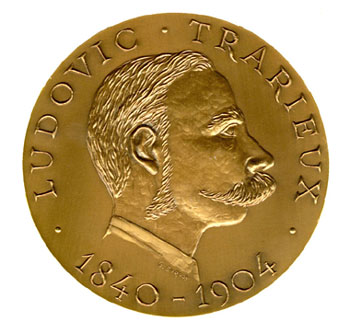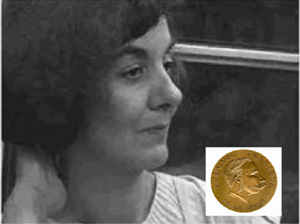


|

|
|

Jadranka Cigelj
Ludovic-Trarieux Prize Winner 1994
|
|
Jadranka Cigelj was a legal professional as a lawyer specialized in labour law in Prijedor, Bosnia-Hercegovina , and lived the life of an "ordinary modern woman", until one day her neighbors kidnapped and tortured her in a concentration camp and became her tormentors. After the Serbs took power on April 30, 1992, they opened detention camps in the Prijedor opstina. Two of the concentartion camps, Omarska and Keraterm, were places where killings, torture, and brutal interogations were carried out. The third, Trnopolje, had another purpose; it functioned as a staging area for massive deportations of mostly women, children, and elderly men, and also killing and rapes. |

|
As part of the Serbian " ethnic cleansing " campaign, Jadranka Cigelj and her childhood friend, Nusreta Sivac, a muslim judge in Prijedor, and other women were kidnaped and shipped to the Omarska concentration camp. For two months, Serbian officers, soldiers, and police, many of whom were their former neighbors, raped them repeatedly and forced them to watch as friends die all around them.
Her story is told in Mandy Jacobsonís film entitled "Calling the Ghosts: War Crimes Against Women". The film was awarded several times and received in 1998 the "Robert F. Kennedy Journalism Award" (Grand Prize Runner-up/First Prize International Television). It chronicles the transformation of the tortured women as their personal struggle for survival transforms into a larger fight for justice. Putting rape into the international lexicon of war crimes becomes their mission. Due to their brave efforts, their very torturers now stand indicted by the International War Crimes Tribunal. Despite its painful story, Calling the Ghosts ends on a hopeful note, with Jadranka Cigelj providing testimony, in the Hague, for the ICTY.
Jadranka Cigelj received the "Ludovic-Trarieux Prize" in Bordeaux on June 16, 1994. His candidacy was presented by " Jurists without borders ".
She dedicated the award to the memory of the five women dead in Omarska camp.
